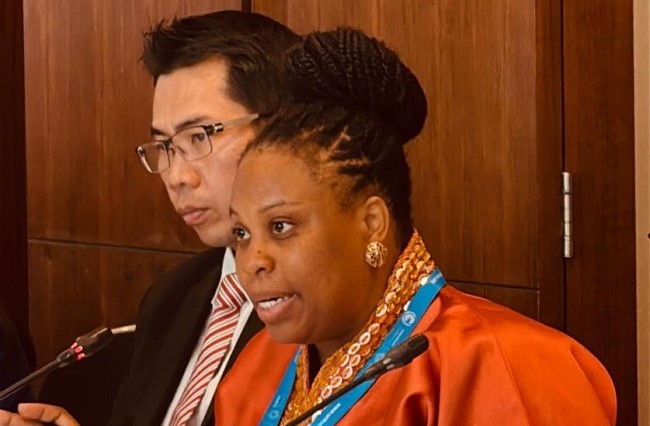As the first week of COP29 ended over the weekend, Dr. Nkiruka Maduekwe, Director General of Nigeria’s National Council on Climate Change (NCCC), addressed the press, highlighting key themes and Africa’s unwavering stance on critical issues.

Dr. Maduekwe emphasised the intensity of ongoing negotiations, with week two expected to be even more crucial. She reiterated Africa’s firm position on reforming the global financial architecture to ensure climate action doesn’t translate into further debt burdens for the continent.
Recognising the ambition of Africa’s Nationally Determined Contributions (NDCs), she stressed the need for innovative financial solutions like blended finance, and a clear distinction between development finance and climate finance.
Methane has emerged as a major focus at COP29, with high-level meetings organised by China and the United States, alongside numerous side events.
Dr. Maduekwe underscored the importance of addressing short-lived climate pollutants like methane and black carbon, recognising their significant impact on global warming. She also revealed that Nigeria signed a Memorandum of Understanding (MoU) with China on methane mitigation, hinting at a potential support announcement in the coming week.
Addressing concerns about nuclear energy, Dr. Maduekwe affirmed Nigeria’s commitment to safety, highlighting the role of the national nuclear regulatory agency. She positioned clean nuclear energy as a viable option for diversifying the country’s energy mix.
On the topic of Just Transition, Dr. Maduekwe stressed the importance of inclusivity, particularly the involvement of the oil and gas sector. Acknowledging the historical role of fossil fuels in Nigeria’s development, she advocated for a collaborative approach to decarbonisation, ensuring a clean, just, and equitable transition for all stakeholders. She expressed satisfaction with the active participation of the oil and gas sector in high-level discussions at COP29.
With week one setting the stage for intensified negotiations, Africa’s call for financial reform and the global focus on methane reduction are poised to dominate discussions in the days to come.
By Offiong Effiwatt
